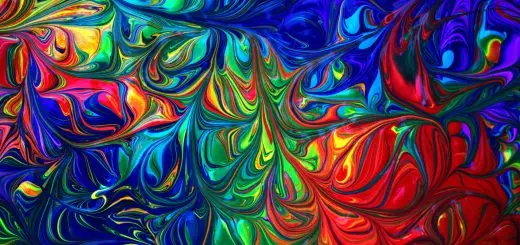Rituals and Ceremonies: Honoring Ancestors

Looking for more amazing products? Check out our online store and explore our collection here! Happy shopping!
Before diving in, please note: This post is for informational purposes only. If you’d like to know more about how we approach topics, feel free to check out our friendly Disclaimer Page.
Hey there, amazing readers! 
We’re committed to delivering quality posts, and your support (even just sticking around despite the ads) means everything to us. So, bear with us, and thanks for helping us keep the good vibes rolling. Now, on to the fun stuff!
TRANSLATE BUTTON AT THE END OF THE ARTICLE
A Quick Overview: Understanding the Importance of Ancestral Honoring
Honoring ancestors is a practice deeply ingrained in many cultures worldwide.
It involves rituals and ceremonies aimed at showing respect, gratitude, and reverence to those who came before us.
The act of honoring ancestors is believed to strengthen familial bonds, preserve traditions, and seek guidance from the wisdom of past generations.
This article delves into the historical roots, diverse practices, and cultural significance of ancestral honoring across different societies.
Historical Roots of Ancestor Worship in Different Cultures
Ancestor worship dates back thousands of years and can be traced to ancient civilizations such as the Egyptians, Greeks, Romans, and Chinese.
These cultures believed in the spiritual continuity of the deceased and practiced rituals to honor and appease their ancestors.
In some societies, ancestor worship was central to religious beliefs and played a vital role in shaping social structures and customs.
The rituals associated with ancestor worship varied widely, from elaborate ceremonies to simple offerings of food and incense.
Rituals and Ceremonies Across Various Cultures
Across the globe, diverse cultures have developed unique rituals and ceremonies to honor their ancestors.
In Mexico, the Day of the Dead is a vibrant celebration where families gather to remember and honor deceased loved ones.
In Ireland, the tradition of Samhain marks the end of the harvest season and is a time to honor ancestors.
In Japan, the Obon festival is a time when families welcome back the spirits of their ancestors with offerings of food and dance.
These rituals serve as a way to connect with the past and maintain a sense of continuity with previous generations.
Practices for Honoring Ancestors in Indigenous Communities
Indigenous communities around the world have rich traditions of honoring ancestors through ceremonies that respect the natural world and acknowledge the interconnectedness of all living beings.
For example, the Lakota people perform the Hanblecheyapi ceremony to communicate with their ancestors and seek guidance.
In Australia, Aboriginal communities hold smoking ceremonies to cleanse and purify the environment while honoring the spirits of the land.
These practices reflect a deep reverence for the wisdom and guidance passed down through generations.
Ancestor Veneration in Asian Traditions: From China to Japan
In Asian cultures, ancestor veneration is a deeply rooted practice that emphasizes filial piety and respect for elders.
In China, the Qingming Festival is a time when families visit the graves of their ancestors to clean the burial sites and make offerings of food and incense.
In Japan, the practice of Butsudan involves creating a household altar to honor deceased family members and ancestors.
These traditions highlight the importance of maintaining a connection with one’s roots and showing gratitude for the sacrifices of past generations.
African Ancestral Rituals: Connecting with the Past
In many African societies, ancestral worship is a fundamental aspect of spirituality and cultural identity.
Ancestor veneration is believed to provide protection, guidance, and blessings to the living.
In Ghana, the Ashanti people hold annual ceremonies to honor their ancestors and seek their wisdom.
In South Africa, the Zulu tradition of Ukubuyisa involves communicating with ancestors through divination and ritual offerings.
These rituals serve as a way to maintain a connection with the spiritual realm and acknowledge the role of ancestors in shaping collective identity.
European Ancestral Worship: Customs and Traditions
Throughout Europe, various cultures have practiced forms of ancestor worship that reflect their unique beliefs and traditions.
In Celtic societies, the festival of Samhain was a time to honor the spirits of the dead and mark the beginning of winter.
In Greece, ancestor worship played a significant role in religious practices, with families offering sacrifices to their deceased relatives.
These customs underscore the importance of remembering and paying tribute to those who have passed on, ensuring their legacy lives on in future generations.
Modern Approaches to Honoring Ancestors in the Digital Age
In today’s digital age, the ways in which we honor our ancestors have evolved to incorporate modern technology and communication tools.
Online memorial websites allow individuals to create virtual tributes to deceased loved ones, sharing memories and photos with a global audience.
Social media platforms provide a space for families to commemorate special occasions and anniversaries of their ancestors’ passing.
These modern approaches to ancestral honoring blend traditional rituals with contemporary methods of preserving and celebrating the legacy of those who have passed on.
The Role of Ancestors in Spiritual and Religious Beliefs
Ancestors hold a significant place in many spiritual and religious traditions, serving as intermediaries between the living and the divine realm.
In African diasporic religions like Vodou and Santeria, ancestors are revered as spiritual guides who offer protection and guidance to their descendants.
In Buddhism, ancestor worship is a common practice that emphasizes the interconnectedness of all beings and the importance of honoring one’s lineage.
Across various faiths, the role of ancestors in spiritual beliefs underscores the continuity of life beyond death and the eternal bond between past, present, and future generations.
Tools and Offerings Used in Ancestral Ceremonies
Ancestral ceremonies often involve the use of specific tools and offerings to communicate with and honor ancestors.
In many cultures, incense is burned as a way to purify the environment and create a sacred space for ancestral spirits.
Food and drink offerings are also common, symbolizing hospitality and nourishment for the visiting ancestors.
Ritual objects such as candles, flowers, and sacred symbols play a role in creating a visually stimulating and spiritually resonant environment for ancestral ceremonies.
These tools and offerings serve as a means of connecting with the spiritual realm and showing respect for the presence of ancestors.
Common Themes and Symbolism in Ancestral Honoring
Across cultures, certain themes and symbols recur in practices of ancestral honoring, reflecting universal beliefs about the continuity of life and the importance of familial connections.
Ancestral altars and shrines are often adorned with photographs, mementos, and symbolic objects that represent the deceased loved ones.
Water, a symbol of purification and renewal, is commonly used in ancestral ceremonies to cleanse and rejuvenate the spiritual energy of the space.
Trees, considered sacred in many cultures, are believed to bridge the gap between the earthly realm and the spiritual realm, serving as a conduit for ancestral communication.
These common themes and symbols highlight the shared human experience of honoring and remembering those who have come before us.
Conclusion: Embracing the Legacy of Ancestors Through Rituals
In conclusion, honoring ancestors is a practice that transcends cultural boundaries and time, reflecting the universal human desire to connect with the wisdom and guidance of past generations.
Through rituals and ceremonies, we pay tribute to the sacrifices and achievements of our ancestors, preserving their legacy for future generations.
Whether through traditional practices or modern approaches, the act of honoring ancestors serves as a powerful reminder of the continuity of life and the enduring bond between past, present, and future.
By embracing the legacy of our ancestors, we enrich our own lives and ensure that their memory lives on in the hearts and minds of those who come after us.

The Enlightenment Journey is a remarkable collection of writings authored by a distinguished group of experts in the fields of spirituality, new age, and esoteric knowledge.
This anthology features a diverse assembly of well-experienced authors who bring their profound insights and credible perspectives to the forefront.
Each contributor possesses a wealth of knowledge and wisdom, making them authorities in their respective domains.
Together, they offer readers a transformative journey into the realms of spiritual growth, self-discovery, and esoteric enlightenment.
The Enlightenment Journey is a testament to the collective expertise of these luminaries, providing readers with a rich tapestry of ideas and information to illuminate their spiritual path.
Our Diverse Expertise
While our primary focus is on spirituality and esotericism, we are equally passionate about exploring a wide range of other topics and niches 

To ensure we provide the most accurate and valuable insights, we collaborate with trusted experts in their respective domains 
Our blog originally focused on spirituality and metaphysics, but we’ve since expanded to cover a wide range of niches. Don’t worry—we continue to publish a lot of articles on spirituality! Frequently visit our blog to explore our diverse content and stay tuned for more insightful reads.
Hey there, amazing reader! 
Check out our store here and take a peek at some of our featured products below! Thanks for being awesome!










